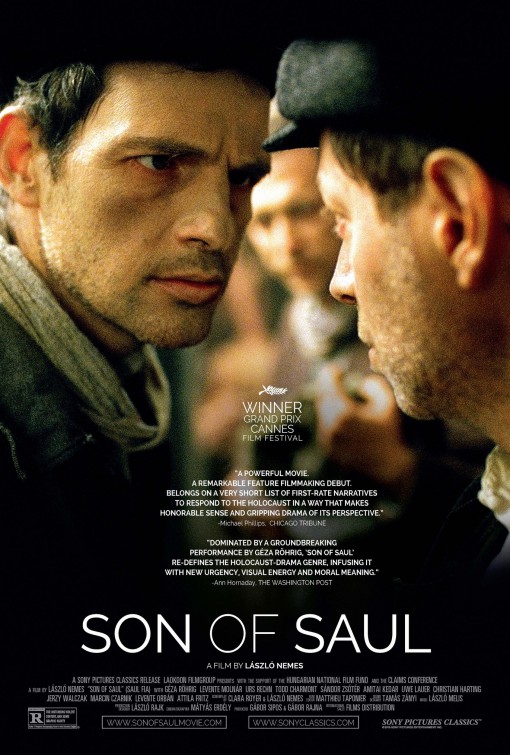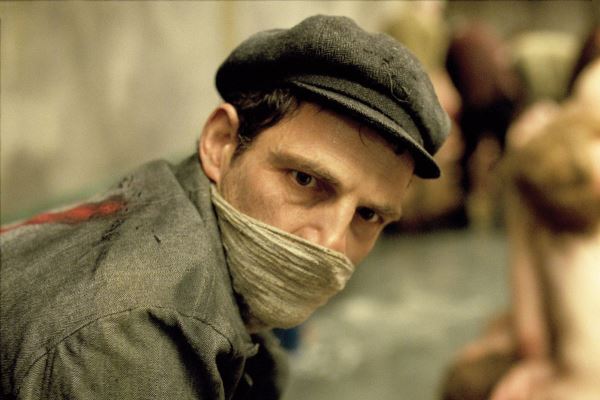There are two types of films that allow or force the viewer to be entirely consumed by what they are watching and simply experience what is happening on screen. The first, and most obvious, type is the formulaic action film or comedy; the types of films that require very little, if any, effort to watch. The second type, however, is so immersive that you simply cannot think, despite the plethora of ideas raised by whatever unfolds. László Nemes’ Son of Saul (Saul fia) is a prime example of the latter.
Throughout the film, we (literally) follow Saul (Géza Röhrig), a Hungarian prisoner in Auschwitz who is forced to work in the gas chambers as a Sonderkommando. When he discovers the still-alive body of a boy whom he believes to be his son, he goes on a sort of haunting Odyssey throughout the camp looking for a rabbi to perform the proper burial for the boy. This proves to be an extremely difficult and possibly doomed goal, but Saul stubbornly refuses to abandon the boy.
What we see, in only a few terrifyingly realistic scenes (there are very few cuts), are the inner-workings of the concentration camp and a look at the social hierarchy that has grown within. It is this realism that attacks the viewer’s senses on multiple levels, as much of the horror happens directly off-screen, leaving the bloodshed to the imagination (which is extremely effective and disturbing). This is made possible not only by Mátyás Erdély’s extraordinary cinematography, but because of the film’s brilliant sound design.
What separates Son of Saul from many other films that tackle sensitive and undeniably heinous real-life events like the Holocaust is that, coupled with its impressive depiction of the subject, at the core of the film is a simple story of love. Allowing the film to be so full of heart in the face of possibly the ugliest time and place in history is a bold choice and it absolutely pays off.
If the fact that the two front-runners for the Best Foreign Language Film Oscar (Son of Saul and Deniz Ergüven’s Mustang) are both debut films for both their directors and lead performers doesn’t make you supremely optimistic for the future of world cinema, then you haven’t been paying attention.
WHERE TO WATCH: (powered by JustWatch)

| Producer: | Gábor Sipos and Gábor Rajna |
| Release Date: | February 12, 2016 |
| Starring: | Géza Röhrig, Levente Molnár, Urs Rechn, Todd Charmont, Jerzy Walczak, Sándor Zsótér, and Levente Orbán |
| User Rating: | |
| Writer: | László Nemes and Clara Royer |
| MPAA Rating: | R |
| Director: | László Nemes |
| Distributor: | Sony Pictures Classics |
| External Info: | Facebook & Twitter |


